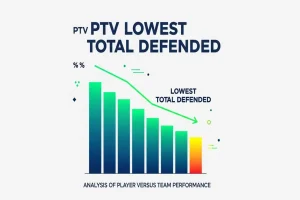In 2025, Pakistan is undergoing an impressive revival in its startup ecosystem due to a surge in inflows of venture capital, government backing of digital transformation initiatives and a youthful and technologically savvy population that is innovating across fintech, e-commerce, agritech and logistics among other industries. Although the global economic environment had a negative impact on startups in the past years, over $26.5 million were raised by Pakistani startups in Q4, 2024, which provides a platform to boost its development. The ecosystem is expected to experience a small GDP growth of 3.4 as per recent reports and this will attract more investors and allow the ecosystem to remain scalable. As IT exports continue to skyrocket and international events such as Expand North Star bring local talent to the limelight, 2025 is a very important year to be a homegrown venture. In this case, we identify five of the most rapidly growing startups, which were chosen according to the latest financing rounds, the pace of user adoption, market expansion rates, and the income growth rates.
1. Bazaar Technologies
Bazaar Technologies is a powerhouse of B2B e-commerce that figures out small retailers with the suppliers by using its user-friendly system. Started in 2020, the company provides inventory storage, procurement solutions, and financing in Bazaar Credit, with a 100 percent loan repayment rate. As of 2025, Bazaar has boarded over 2.4 million businesses in 500 cities and transacted over $10 billion in addition to serving 30% of the Pakistan population. It can be seen that it has experienced rapid expansion as indicated by the $70 million Series B funding it had secured at an earlier stage that was led by international investors such as Dragoneer and Tiger Global, which has allowed it to make expansions such as the Bazaarapp to deliver groceries the next day. Why it is expanding rapidly: With a traditional retail market of $170 billion and only 2-3% of it digitized, Bazaar is digitalizing its traditional supply chains, and is further extending its financial services integration as e-commerce grows in demand.

2. PostEx
Instead, PostEx is transforming e-commerce logistics, offering same-day deliveries and upfront cash advances (up to 70% of sales) to sellers that depend on cash-on-delivery. It operates in more than 500 cities and has a delivery success rate of 92 and has made PKR 25 billion payment. Its acquisition of Call Courier and its move to the GCC region, such as Saudi Arabia and the UAE has been enabled by the 7.3 million Pre-Series A financing secured in late 2024 by the startup. By 2025, PostEx will become the largest e-commerce service provider in Pakistan and cover 1.3 million consumers per month. The growth drivers are dealing with the 90% COD dominance in online transactions in the local market and a loan book of over 12 million, which will see it scale exponentially in the emerging markets of high growth.

3. Saraaf
Saraaf is dismantling the order of sourcing commodities by connecting the international purchasers and the suppliers based in Central and South Asia, dealing with minerals, onyx and cotton. The B2B platform should make trade globally easier through one- click purchases. On Shark Tank Pakistan, Saraaf made a successful deal of PKR 1.5 billion (USD 5.37 million) in 2024, which is the largest in the history of the global Shark Tank franchise. This capital is driving its vision of being the biggest sourcing network in Asia. As the export economy of Pakistan continues to ride high, Saraaf is set to expand in 2025 through strategic alliances and technology-driven transparency to reach the underserved markets when the world is on a spurt in demand of South Asian resources.

4. Farmdar
Farmdar, being an agritech innovator, uses AI and satellite data to help farmers monitor crops better, optimize yields, and be more resilient to climatic conditions. It is a vast agricultural area, which gives insights that are data-driven to diminish wastage and increase productivity. In 2024, the startup attracted attention due to a Pre-Series A round of funding by Silicon Valley investors, the first to fund an agritech company in Pakistan, allowing the company to expand to Southeast Asia. Farmdar is a fast-growing enterprise in 2025, and its development occurs within the Pakistani climate context, where the instruments assist in countering floods and droughts that cover 70 percent of the agrarian sector of the economy. It is a major player in a sector that will expand at 12.4 per cent with more international partnerships since it is based on sustainable farming.

5. SadaPay
SadaPay is a leading fintech pioneer that provides free digital banking through a debit card and application with additional services such as instant transfers and safe payments. It has been fast spreading to the target market of 100 million unbanked adults in Pakistan, where digital payments are currently only 1% of the total prices of 4 trillion. Having secured 7.2 million dollars in capital and a user base that continues to grow with alliances, SadaPay can grow its operations in 2025 with integrations with some of the world leaders such as Visa. It is easy to finance the masses and this is its attraction as the government pushes finance inclusion and may add $36 billion to GDP by end of the year. Other competitors such as TAG and NayaPay are also increasing, however SadaPay free service and a faster-onboarding (less than 3 minutes) reward it with an advantage in the number of users.

These ventures are some of the examples of how Pakistan is turning into a tech-based economy, with fintech and e-commerce in the vanguard. With funding recovering by 450% earlier in 2025 than it was in 2024 and ecosystems such as MENA affirming Pakistan as the most rapidly growing hub, more unicorns are likely to be created. In this dynamic environment, 2025 has enormous prospects for entrepreneurs and investors.
Check: Latest Business News







